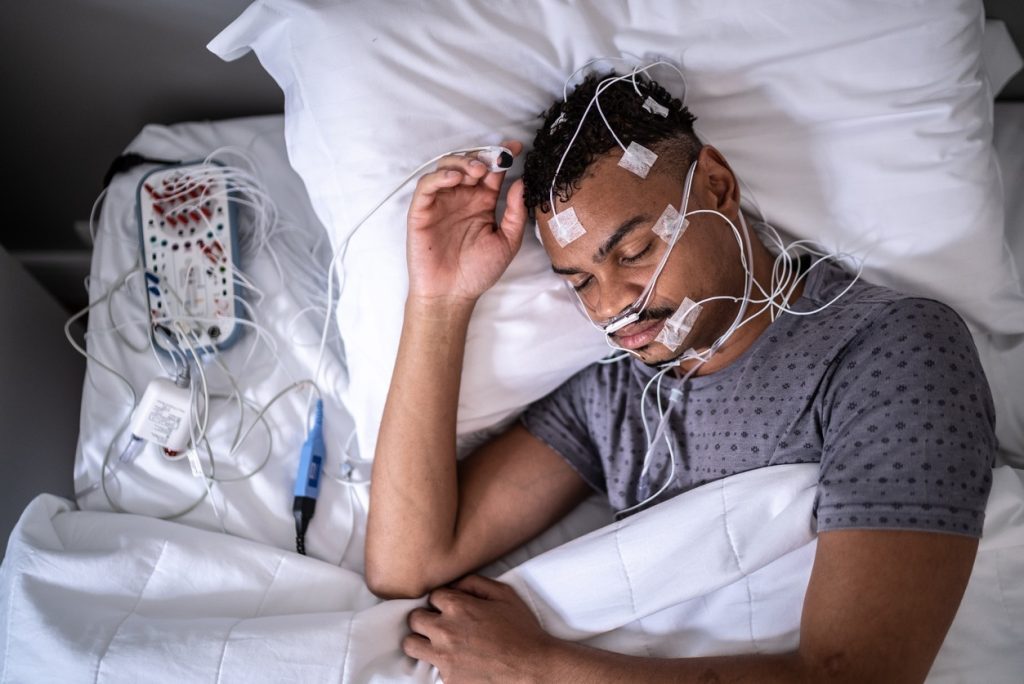- Phone 614-766-0773
- Location Dublin, Ohio
-
Search
About Author
Latest Posts
No Posts Found.
Lab Sleep Study
Tests and Procedures
get A comprehensive lab study
An attended in-lab sleep study is a procedure performed at our sleep clinic overnight to either diagnose (baseline polysomnogram) or treat (titration). Patients typically arrive at 8 pm and leave in the morning around 6 a.m. A subset of patients may also undergo an attended in-lab sleep study during the day to assess hypersomnia and REM sleep (MSLT) or alertness (MWT). Patients undergoing a MSLT/MWT will leave in the afternoon around 5 p.m. All patients should park in the back of our building and enter by the rear entrance. Final results from the in-lab study are available only once scored by the technician and interpreted by the physician. They are typically reviewed during a follow-up visit.
Small surface electrodes are applied to the scalp and other areas of the body. The sleep technician will also place a finger probe, respiratory bands on the chest and abdomen, and an airflow sensor under the nose. Patients are observed all night by a technician via infrared camera and intercom system. The procedure lasts 6-7 hours. Patients typically arrive at night at 8 pm and leave in the morning around 6 a.m.
The purpose of the study is to find the adequate pressure of air to alleviate apnea events. Patients are fitted with a mask they wear throughout the night. The sleep technician will titrate filtered room air through the mask after the patient falls asleep and start snoring or exhibit apneas. The amount of air is different for everyone. The study will last 5-7 hours. Patients typically arrive at night at 8 pm and leave in the morning around 6 a.m.
This procedure usually follows an overnight sleep study and is designed to differentiate between narcolepsy and other excessive daytime sleepiness disorders. Most electrodes from the previous night are removed. Patients take four to five nap sessions at 2-hour intervals throughout the day with the goal of remaining awake between naps. We recommend hobbies, work, games, tablets to keep occupied. Patients should also bring caffeine free beverages, snacks, breakfast and lunch. The procedure typically ends around 5 p.m.
This test usually follows an overnight sleep study and its purpose is to access the propensity to stay awake, sitting in a dimly lit room. Most electrodes from the previous night are removed. The MWT consists of a series of 4 sessions of 40 minutes each, spaced at 2-hour intervals throughout the day. Patients need to stay awake between sessions and are encouraged to bring hobbies, games, work, tablets to keep occupied. Patients should also bring caffeine free beverages, snacks, breakfast and lunch. The procedure typically ends around 5 p.m.

